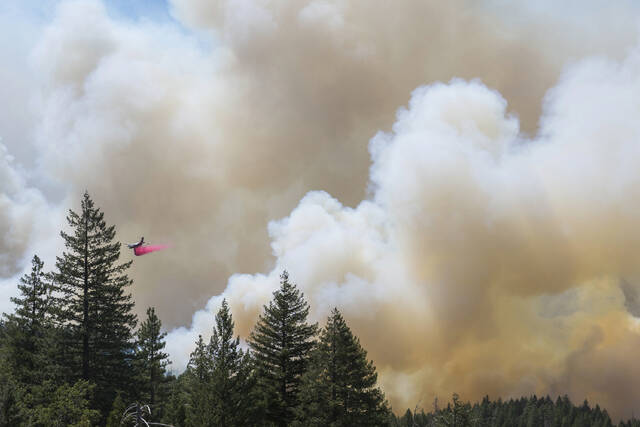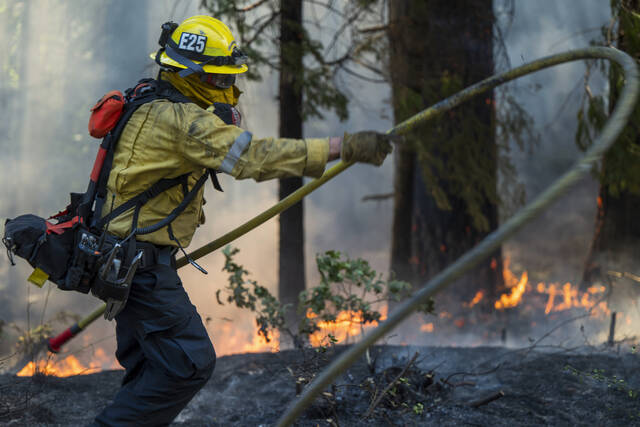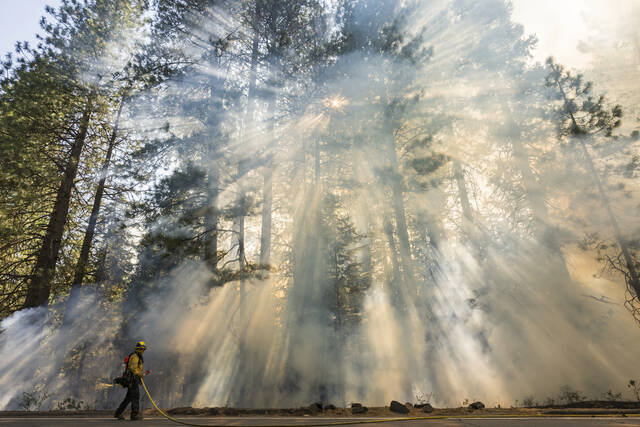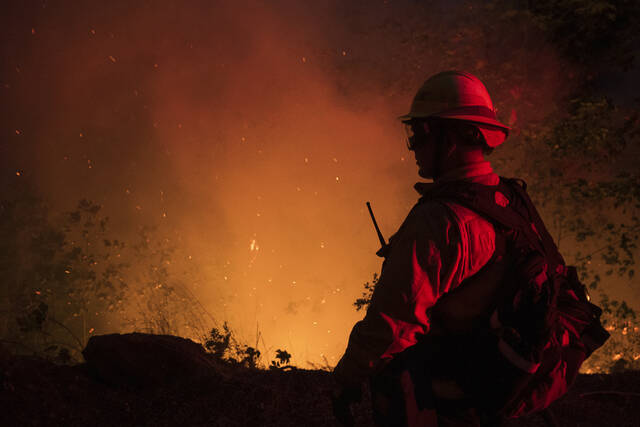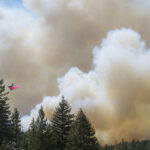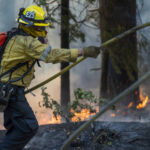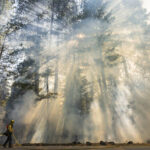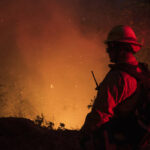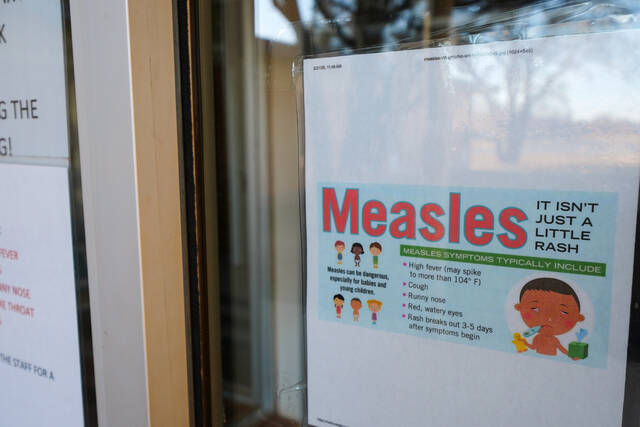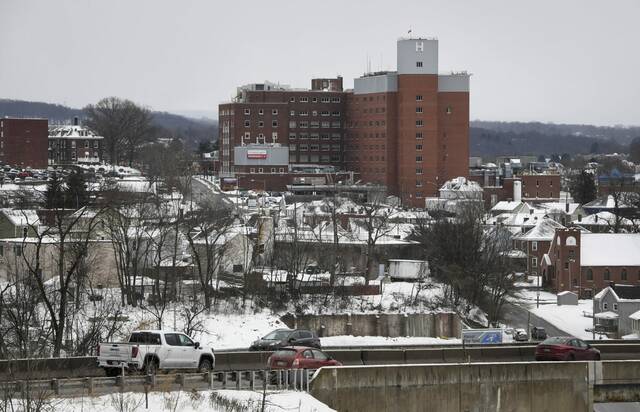Wildfire smoke may be worse for brain health than other types of air pollution, according to new research linking it to an increased risk of dementia.
The findings, reported Monday at the Alzheimer’s Association International Conference in Philadelphia, come as millions spent the weekend under air quality warnings from wildfires spewing smoke across the western U.S.
At issue is fine particulate matter or PM2.5 — tiny particles about 30 times smaller than the diameter of a human hair that can be inhaled deep into the lungs and move to the bloodstream. This pollution — from traffic, factories and fires — can cause or worsen heart and lung diseases, and the new study adds to evidence it may play some role in dementia, too.
Researchers tracked health records from 1.2 million older adults in Southern California between 2009 and 2019. They used air quality monitoring and other data to estimate residential exposure to PM2.5 over three years from wildfire smoke or other causes.
The study found the odds of a new dementia diagnosis increased about 21% for every 1 microgram increase in the concentration of wildfire particles. That compared with a 3% increased risk for every 3 microgram jump in non-wildfire particles, concluded researchers from the universities of Washington and Pennsylvania.
It’s not clear why there would be a difference. But with wildfires increasing, this needs more study, said Alzheimer’s Association chief science officer Maria Carrillo. That’s especially considering that the risk of Alzheimer’s, the most common form of dementia, is higher for lower-income populations who may have a harder time avoiding unhealthy air, she said.
Health warnings urge staying indoors when air quality is poor but “there are a lot of people who don’t have the option to stay home or they work outside,” she noted.


